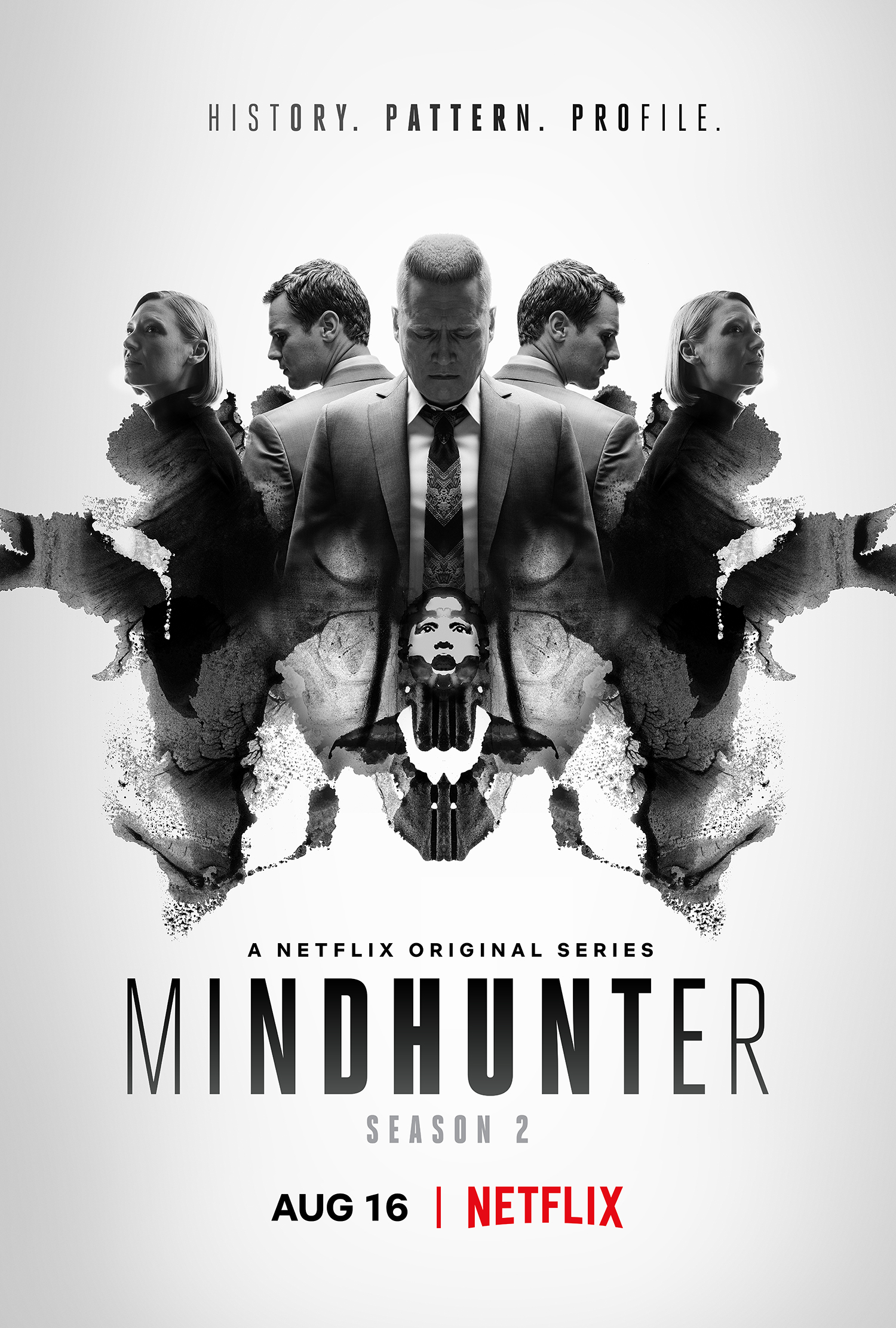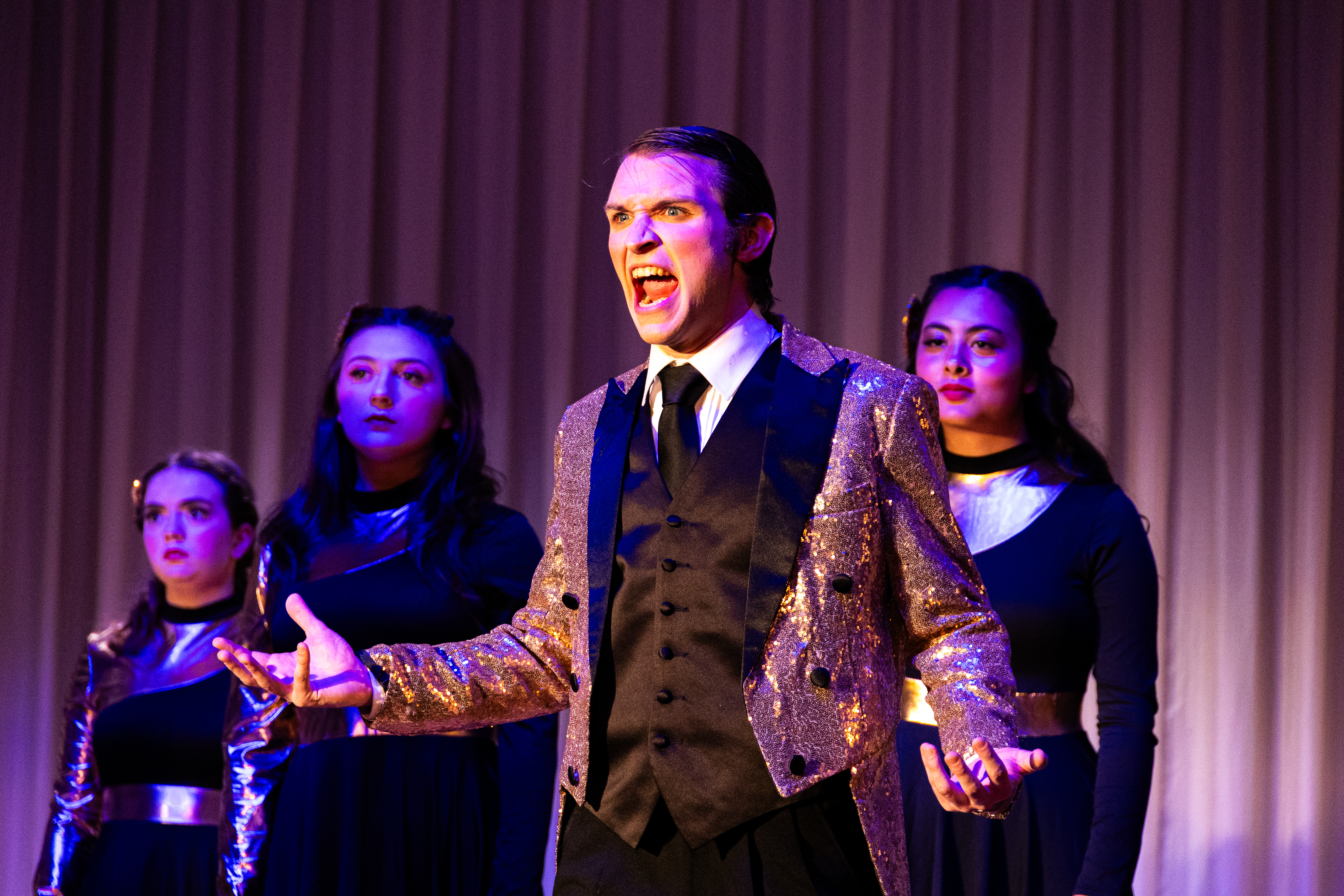“Mindhunter” Season 2 Review
Release Date: August 16, 2019
Number of Episodes: 9
Directed by: David Fincher (3 episodes), Andrew Dominik (2 episodes), Carl Franklin (4 episodes)
Starring: Jonathan Groff
Holt McCallany
Anna Torv
Stacey Roca
There have been TV shows about detectives chasing killers pretty much as long as TV has existed. Through the decades, certain shows have brought new things to the genre, but the basic structure of detectives putting together clues to catch the bad guy that week has changed relatively little.
The first season of Netflix’s “Mindhunter,” released in 2017, worked a lot differently. Most of the killers featured on the show were already caught. The main characters, FBI Special Agents Holden Ford and Bill Tench, are talking to these incarcerated killers and trying to understand why they did what they did. They use this information on the criminal mind to try and catch other killers. Season two continues the story where season one left off.
Tench and Ford’s research is now viewed as more valid and important in the eyes of the FBI higher-ups. With that newfound credibility, they are granted access to more high profile killers like Charles Manson and the Son of Sam. As was the case last season, the actors cast to play these infamous men very much look and act the part.
They also encounter new challenges which come with their increased responsibilities. No longer is the Behavioral Science Unit only interviewing killers. They still do several interviews; however, those are not quite as much of the focus as they were last season. Instead, they have to apply their research to an active serial killer case, the Atlanta Child Murders.
Working on such a high profile case for essentially the first time, the team must deal with the massive pressure coming from higher-ups and the media to get the case solved as soon as possible, even if it means making a few mistakes in the investigation. At the same time, the team faces criticism for their profiling methods. More specifically, they have to deal with centuries-old racial tension in Atlanta and the understandable feelings of distrust towards police held by many in the black community.
This is not to say the show is concerned entirely with murder and other bleak subjects. It is at its best in the small human moments. Whether in a look or a barely detectable vocal change, you can see behind the main characters’ steely demeanor if you look hard enough. This is mostly to the credit of star Holt McCallany. The other actors on the show are great too, but McCallany’s character is the most empathetic of the main protagonists.
Much like the story, the characters in “Mindhunter” continue to progress in the second season. While both Tench and Ford can be called the main characters of the show, this season definitely puts Tench in the spotlight. If last season revolved around Ford, his deteriorating state of mind and the dangers of spending so much time trying to understand how such violent people think, this season focuses on Tench, his family life and a struggle between nurture and nature.
The secondary characters also see more development this season. Most significantly, Dr. Wendy Carr has feelings of dissatisfaction with her place in the BSU. She feels jealous of Tench and Ford because they get to do the more interesting work of interviewing infamous killers while she stays in the office making sense of the information they collect.
Much of the credit for the show’s quality should go to the director and executive producer, David Fincher. He ensures every episode has a similar dark atmosphere. Like all of Fincher’s other work (“Se7en,” “Fight Club,” “Gone Girl”), “Mindhunter” is very heavy in its themes and story. It is worth trudging through that darkness, though, to get to the deep exploration of the terrors of the violent criminal mind. The distinction between them and us is obvious, but “Mindhunter” makes sure to point out that both are undeniably human.











Be First to Comment